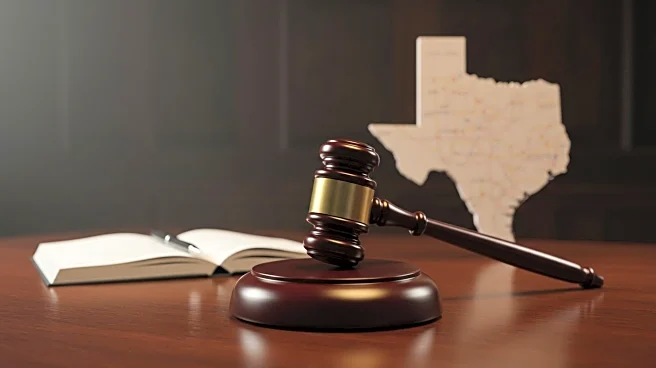What is the story about?
What's Happening?
Texas Governor Greg Abbott has expanded the special session agenda to include legislation that would penalize lawmakers who leave the state to block legislative action. This decision comes after House Democrats fled Texas to protest a GOP-backed redistricting plan, preventing a quorum. Abbott aims to prevent such actions from disrupting legislative processes. The Texas House has since reached a quorum and approved House Bill 4, a controversial measure to redraw congressional maps, potentially creating five new GOP-leaning districts. The bill is expected to pass in the Texas Senate and be signed into law.
Why It's Important?
Abbott's move to penalize lawmakers who flee the state underscores the tension between political parties in Texas and the broader implications for legislative processes. By targeting lawmakers who disrupt proceedings, Abbott seeks to ensure the continuity of governance and the advancement of Republican agendas. This development could influence future legislative strategies and the balance of power within the state, affecting policy decisions and political dynamics.
What's Next?
The legislation penalizing state-fleeing lawmakers will be debated and potentially enacted, setting a precedent for handling political dissent in Texas. The approval of the redistricting bill will likely lead to legal challenges and further political maneuvering. Stakeholders, including political leaders and advocacy groups, may respond to these developments, shaping future legislative and electoral strategies.
Beyond the Headlines
The expanded agenda reflects deeper issues of political control and governance in Texas. The ethical and legal dimensions of penalizing lawmakers for political dissent raise questions about democratic principles and the rights of elected officials. Long-term shifts in political landscapes and governance practices could result from these actions, influencing policy decisions and representation.















